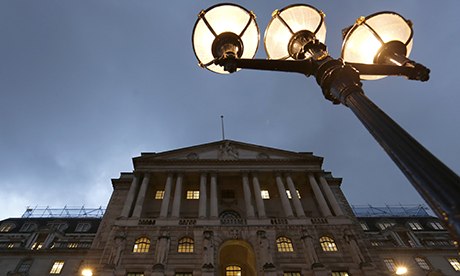The Bank of England has hinted that unexpected improvements in the UK economy may mean interest rates rise a year earlier than initially predicted. The governor, Mark Carney, has suggested rates could rise in 2015 instead of 2016, although he has stressed that a number of factors will be considered before any increase.
Should I worry?
No. Interest rate rises seem to be many months rather than weeks away. However, it would be wise to review your finances and see if you could tolerate a rise. If you are on a variable rate mortgage, or have any other debt not on a fixed interest rate, you might want to make plans in case the base rate does increase from its historical low of 0.5%,
What can I do about my mortgage?
If you are on a variable rate mortgage – either a tracker or your lender's standard variable rate (SVR) – you are exposed to any increase in the Bank base rate.
Trackers are all explicitly linked; you will be paying an interest rate at a set margin above the base rate, and your repayments will increase the month after any rise. Some SVRs are also explicitly linked – for example, Nationwide building society's base mortgage rate is always 2% above the BoE base rate – but even those that are not are likely to go up following any action by the Bank.
Use a mortgage calculator to work out how much you would need to pay each month if rates did start to rise – put in your current rate and then adjust it upwards by degrees to see what repayments would be. For example, if you pay 2.75% now, try it at 3%, 3.25% and so on. When rates rise it is hard to know by how much it will happen, but this will give you an idea of what rises you can cope with. If it makes you nervous, you could consider overpaying on your mortgage now to reduce your debt for later, or switching to a fixed-rate mortgage.
Will that cost me?
Yes. If you are on an SVR mortgage or a deal without early redemption penalties you won't have to pay your existing lender to switch, but you are likely to face fees on your new mortgage – the lowest fixed-rate mortgages tend to have hefty ones. You can avoid charges for valuations and legal work by staying with the same lender and switching to one of its fixes, or looking for a fee-free deal. For example, TSB offers free legals and valuations to remortgagors, while First Direct offers its current account customers a range of fee-free deals.
If you are tied into a tracker or other type of variable rate loan you will face early repayment charges. Ask your lender how much they are before making a decision.
The fixed rate may be higher than your current mortgage rate, so there will also be the cost of the higher repayments to bear in mind. For as long as rates don't move, you will be paying extra. If, for example, you needed an 80% mortgage, Hinkley & Rugby building society would offer a fixed rate of 3.35% for five years. Moving to this from Nationwide's 2.5% base mortgage rate would increase the repayments on a £100,000 mortgage from about £450 to £490 – an extra £480 a year.
A five-year fix of 2.84% is available from Yorkshire building society if you only need to borrow 75%. That would cost an extra £15 a month, and if the base rate rose by 0.5% you would be paying more staying on the variable. At that level you might decide the slight extra cost is worth it. You need to decide if you are prepared to pay for the additional security, and if so how much.
What about other loans?
Most personal loans are on fixed rates, but some are not – and nor are credit cards (although rates on these do not seem to be linked to the base rate, and some providers have put them up despite the Bank not moving).
Again, it is worth stress-testing your own finances. If you know now that you would struggle to keep up repayments at higher rates, think twice about taking on any other commitments. Ask your lender if it has a fixed-rate loan you could switch to, and if there would be any penalties to do so. If rates do move up and you know instantly you will have a problem repaying at the higher rate, contact your lender straight away.
I rent – will it affect me?
It could. Like other homeowners, landlords have been benefiting from record low mortgage rates, and some of those who took loans before the crisis are paying interest of less than 2%. If the base rate rises they will face larger mortgage repayments and may decide to put up rents as a result.
Is it all bad news?
No. Savers and people approaching retirement may be relieved to hear that a base rate rise could be on horizon – interest rates on savings accounts have fallen to record lows, and rates on the annuities available to pensioners have also taken a hammering. A rising base rate wouldn't force banks and building societies to increase what they pay on savings accounts, but it would hopefully enable them to offer some better deals. Annuity rates for new pensioners could also start to climb.










